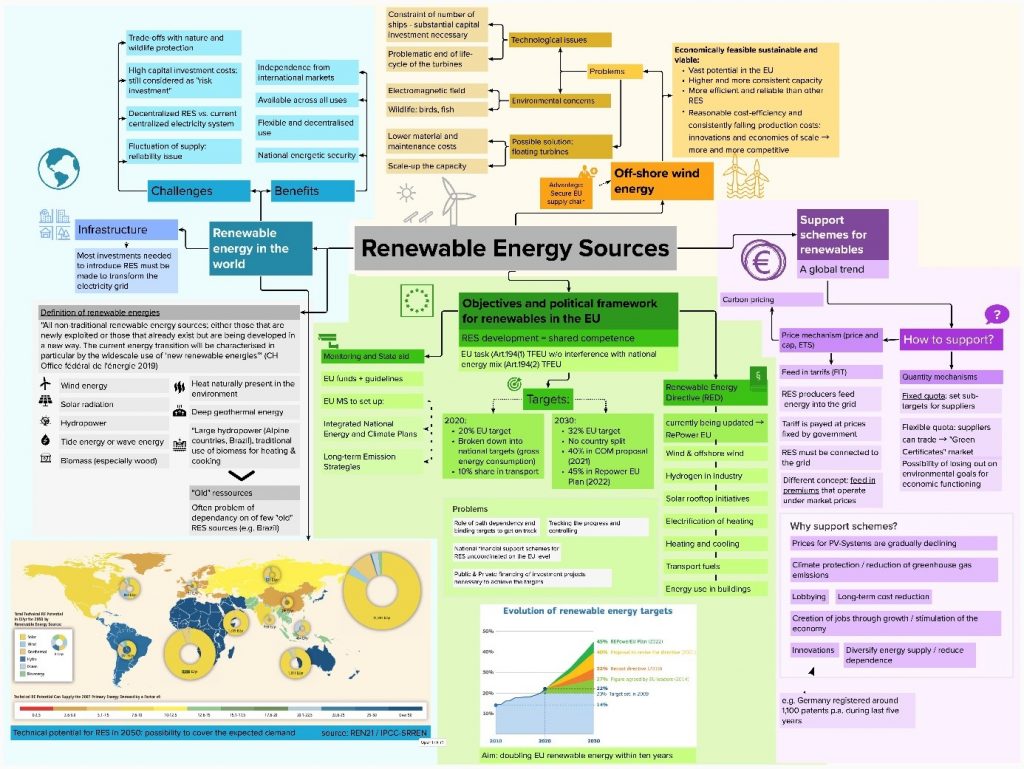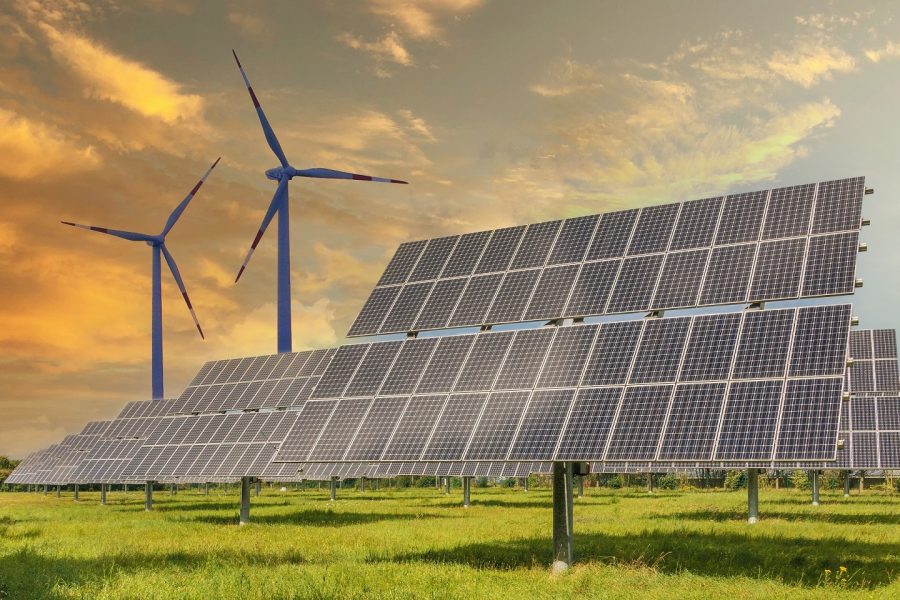
Climate and Energy Policy
29 September 2022
Too good to be true? Offshore wind and the European Green Deal
7 October 2022By Mathilde Missoffe, Vojtěch Holík and Anna Emilie Wehrle
Renewable Energy Sources (RES) are a vital part of the European Green Deal (EGD). The achievement of the EGD goals is virtually impossible without large-scale renewables buildout. After all, the energy sector is responsible for more greenhouse gas emissions than all other sectors (26% of the EU GHG emissions in 2020).
While there are many obvious benefits of renewable energy sources, their implementation in European electricity systems comes with substantial challenges. Most of them are due to problems arising from path dependency (centralized electricity system contra decentralized RES, insufficient network infrastructure) and the question of funding (subsidies and significant investments in installations and electricity grids are necessary).
The development of renewables is a shared competence between the EU and its member states. RES targets are already a part of the EGD, and the Renewable Energy Directive specifies the goals for individual sectors such as sustainable heating. There are multiple policy mechanisms that can be put into place to support the build-out of renewables, such as carbon pricing, feed-in tariffs, or quantity mechanisms. It is crucial, however, that the member states get on track to implement such policies and have incentives to adopt the EU strategy with a long-term vision. A system of monitoring and state-aid will therefore play a key role.
Off-shore wind energy is a good example of RES which will be indispensable to decarbonise energy systems as their implementation is economically feasible and viable. Also, the technology needed can be and is produced in the EU – the supply chain is thus secured. However, there are some technological issues and environmental concerns still need to be addressed.



